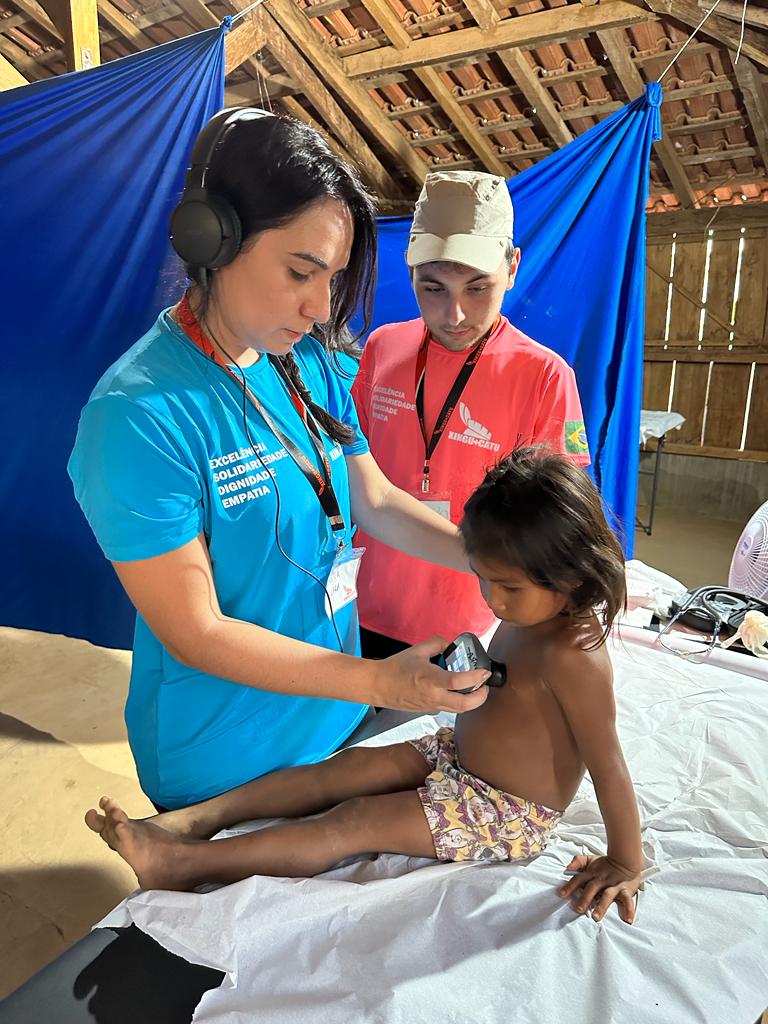
Telehealth has been proving to be increasingly valuable to the healthcare system. The lessons learned and especially what is expected from telehealth in the post-pandemic world were points addressed in this discussion that brought together experts in the field.
Eduardo Cordioli and Caio Soares, president and vice president of Saúde Digital Brasil, and the entity's advisors Guilherme Weigert and Fábio Tiepolo participated in a Medical Conecta debate about the future of telemedicine and what can be expected from telehealth in the post-pandemic world. The event, promoted by Medical Fair Brasil, took place virtually, between August 10 and 14, with the aim of connecting stakeholders, discuss the health scenario in Brazil, boost business and, above all, make a difference and save lives.
“Telemedicine has experienced an explosion during the pandemic and has shown how valuable it can be for society. In addition to guaranteeing and democratizing access to healthcare, it is now one of the most concrete ways to help reorganize the already collapsed Brazilian healthcare system, both in the public and private sectors,” emphasizes Eduardo Cordioli, president of Saúde Digital Brasil.
Therefore, the need for definitive regulation as well as the certainty that this is an irreversible movement in healthcare were points addressed during the panel. According to the experts, going backwards could be synonymous with creating chaos, either due to a demand from society itself, which has shown itself to be quite favorable and assiduous towards telemedicine services, or due to the clear need of the healthcare ecosystem, which needs to provide more capacity and expand services to the population.
Although the pandemic scenario continues to be an important barometer and a great lever for telehealth in Brazil, to understand the real impacts that the interruption or restriction of the use of this modality in its entirety would cause in Brazilian healthcare, it is necessary to look at and compare the healthcare scenario in the pre-pandemic period. Emergency rooms, for example, are historically the areas of hospitals with the lowest patient satisfaction rates and those most associated with high costs for institutions and healthcare providers. Telemedicine and digital health emerge as a solution not only to shorten the patient's journey and the huge queues, but also to reduce costs and waste.
Other benefits of digital health were also mentioned, such as system integration and the possibility of patients being treated, with their medical history in hand, anywhere in the world. In addition, there is its advantageous capacity for expanding the service and improving the accuracy of diagnosis and treatment, thanks to the data that can be collected throughout the patient's journey, from the first consultation to treatment and the adoption of preventive care lines.
To conclude the discussion, topics such as artificial intelligence and the union of the physical and digital worlds were brought up (phygital) and its substantial gains for doctors, patients and healthcare institutions.
“It is impossible to separate the two worlds, and not everything can be done from a screen away. The more platforms and stakeholders “The more connected they are, the easier it will be for patients to manage their health. Digital Health is a way to help optimize health, and telemedicine is nothing more than medicine done with the support of technology. Many thanks to Medical Fair Brasil for giving us the opportunity to discuss this topic of great relevance to society,” concludes the president of Saúde Digital Brasil.





